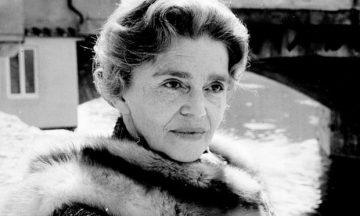Jonathan Freedland in The Guardian:
 It consists of nothing more than an intermittent correspondence between two friends. Yet the epistolary form is deceptively efficient, supplying backstory, plot, character, dialogue and more than one narrative voice before a conventional novel might have cleared its throat. Within a page or two, we are in the world of Martin and Max, both German, the latter a Jew now living in San Francisco, the former now back in Munich – two men who have been business partners, friends and whose families have, as we shall discover, been intimately connected.
It consists of nothing more than an intermittent correspondence between two friends. Yet the epistolary form is deceptively efficient, supplying backstory, plot, character, dialogue and more than one narrative voice before a conventional novel might have cleared its throat. Within a page or two, we are in the world of Martin and Max, both German, the latter a Jew now living in San Francisco, the former now back in Munich – two men who have been business partners, friends and whose families have, as we shall discover, been intimately connected.
Their exchange, spanning just 16 months between 1932 and 1934, illuminates not just the specific texture of the early Nazi period, but something more timeless. It serves as a guide to the way any politics of identity – especially one that invokes “the people”, rooting that idea in blood and soil – eventually, and often very rapidly, divides and polarises. Max and Martin have shared “the fireside”, there finding “warmth and understanding, where small selfishnesses are impossible and where wine and books and talk give a different meaning to existence”. But even the very best of friends can be rent apart. Once a dividing line is drawn, it’s astonishing how swiftly people can break from those who stand on the other side of it. In that sense, Address Unknown is a warning. We tell ourselves, as these characters do, that friendship is eternal, that some bonds will never be broken. This short story warns us that ideology, once it has turned to fever, is stronger than friendship.
More here.
